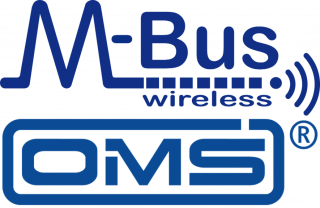
Wireless M-Bus Stack
The popular Wireless M-Bus Protocol Stack by STACKFORCE leads to competitive products that are easy to install and maintain. The stack implements all protocol elements that are required for wireless M-Bus compliance and provides additional tool support. It is optimized towards a compromise of small footprint, excellent modularity and scalability, but though being feature-rich. Learn more about Wireless M-Bus technology!
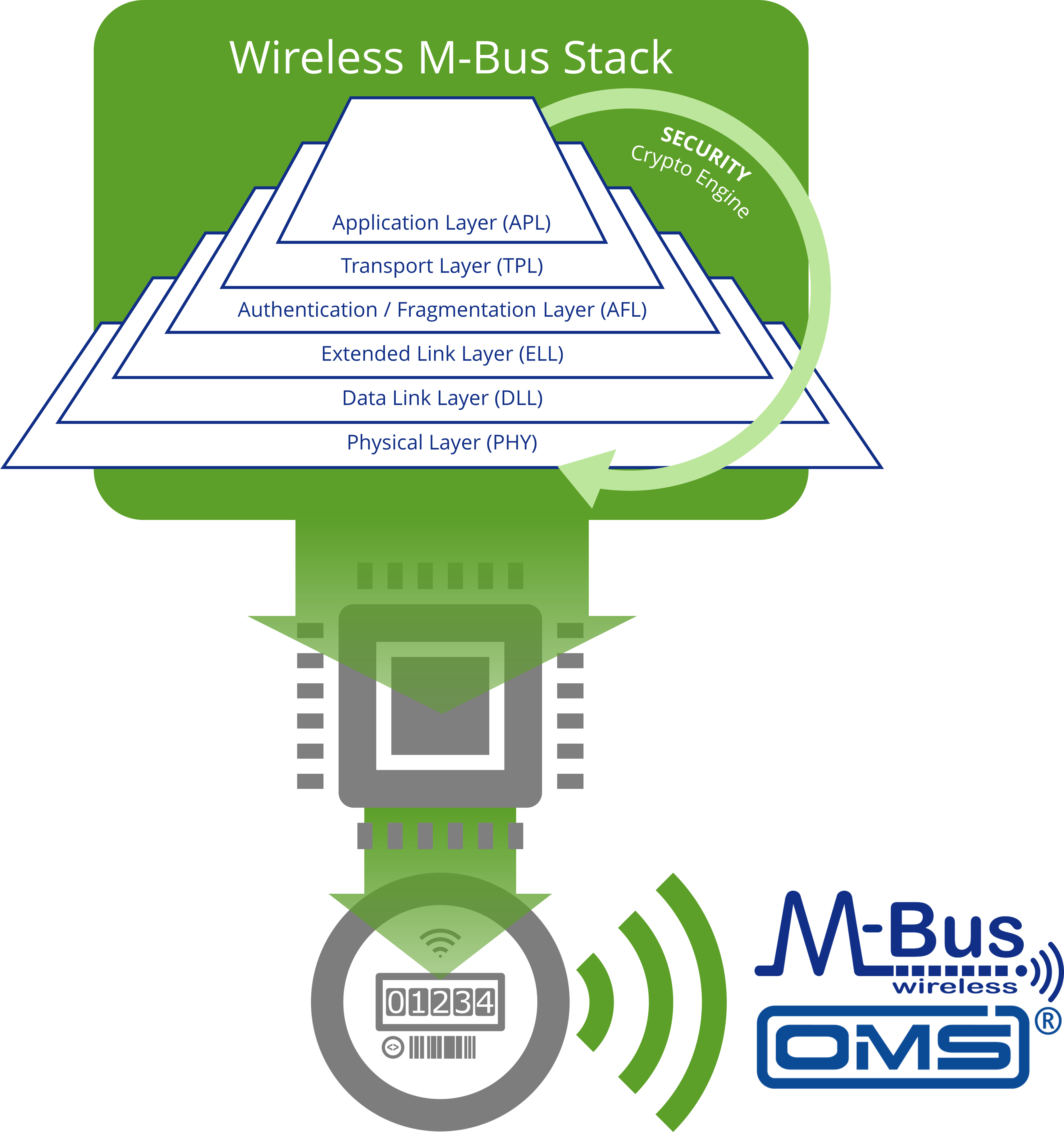

Compliant to EN 13757 and OMS Specification

Available for meter and collector

Comprehensive support and maintenance

More Network coverage in combination with LoRaWAN® or mioty®

Pre-certification of the stack for reference hardware platforms

Platform independance: the stack has been ported to many hardware platforms
Get in touch







Supported Specifications
Compliant according EN 13757-4 "Wireless M-Bus Communication"
- Physical Layer
- Supporting the most popular modes:
- Mode T, permitting short Rx windows for meters (2 ... 3 ms)
- Mode C, including support for combined T and C mode as collector
- Other modes possible
- Frame format A and B
Compliant according EN 13757-3/7 "Application protocols"
- De- / Encryption
- Transport layer (TPL)
- Authentication and Fragmentation Layer (AFL)
- Application Layer (APL)
Compliant according OPEN METERING STANDARD (OMS)
- Version 4.1.2
- Version 4.2.1
- Version 4.3.3
- Prepared for encryption mode 13 (TLS)
Compliant to other wireless M-Bus standards
- DSMR
- ESMR
- CIG
Stack Features
Flexible Interfaces
- API for Application Layer for single chip solutions
(API for other layers (e.g. DLL) possible) - API for externalization of security functions
- Well-formed Hardware Abstraction Layer (HAL)
- Available as library
Network processor
- Well-proven serial interface with minimal
overhead - All API functions available via serial interface
- Serial interface supports UART, SPI, I²C, …
- AES encryption for serial interface
Support of hardware acceleration
If provided by the platform, the stack supports the use of hardware acceleration, like:
- AES de- / encryption
- CRC-16
- De- / encoding of Manchester, 3 out of 6, ...
Wireless M-bus mode and device type selection
Selection of mode (e.g. T and C), direction (unidirectional / bidirectional) is possible ...
- during compile time to shrink the memory footprint.
- during runtime to permit flexibility at any time in the field.
Flexible Software Timer
In order to make use of only one hardware timer for all wireless M-Bus related timings, the stack can perform compensation for synchronous interval timing as well as automatically drop packets in case of a large mismatch.
Support of any type of non-volatile memory
- EEPROM, Flash, MRAM, …
- Internal / external (e.g. connected via SPI)
wireless M-Bus stack architecture
Classical or with LPWAN technology
wM-Bus stack for meter / collector
according to
EN 13757 and
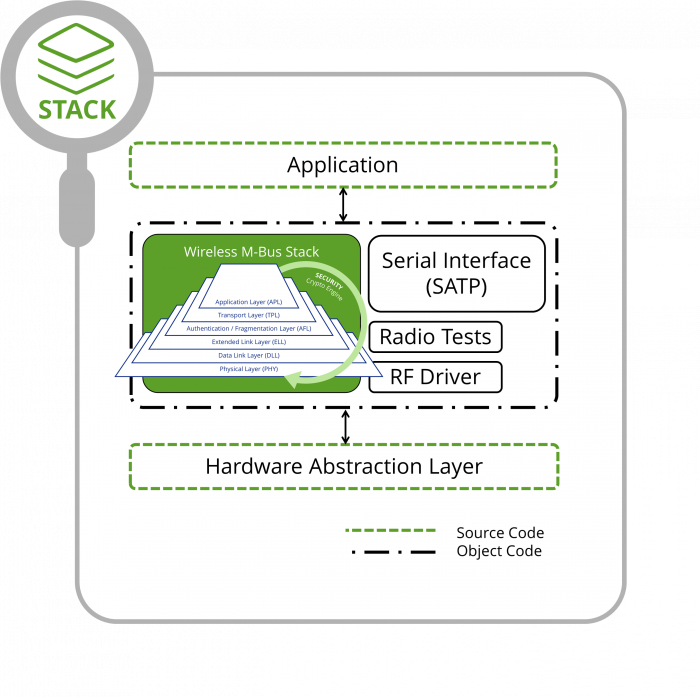
M-Bus-over-LPWAN stack for meter / collector
with
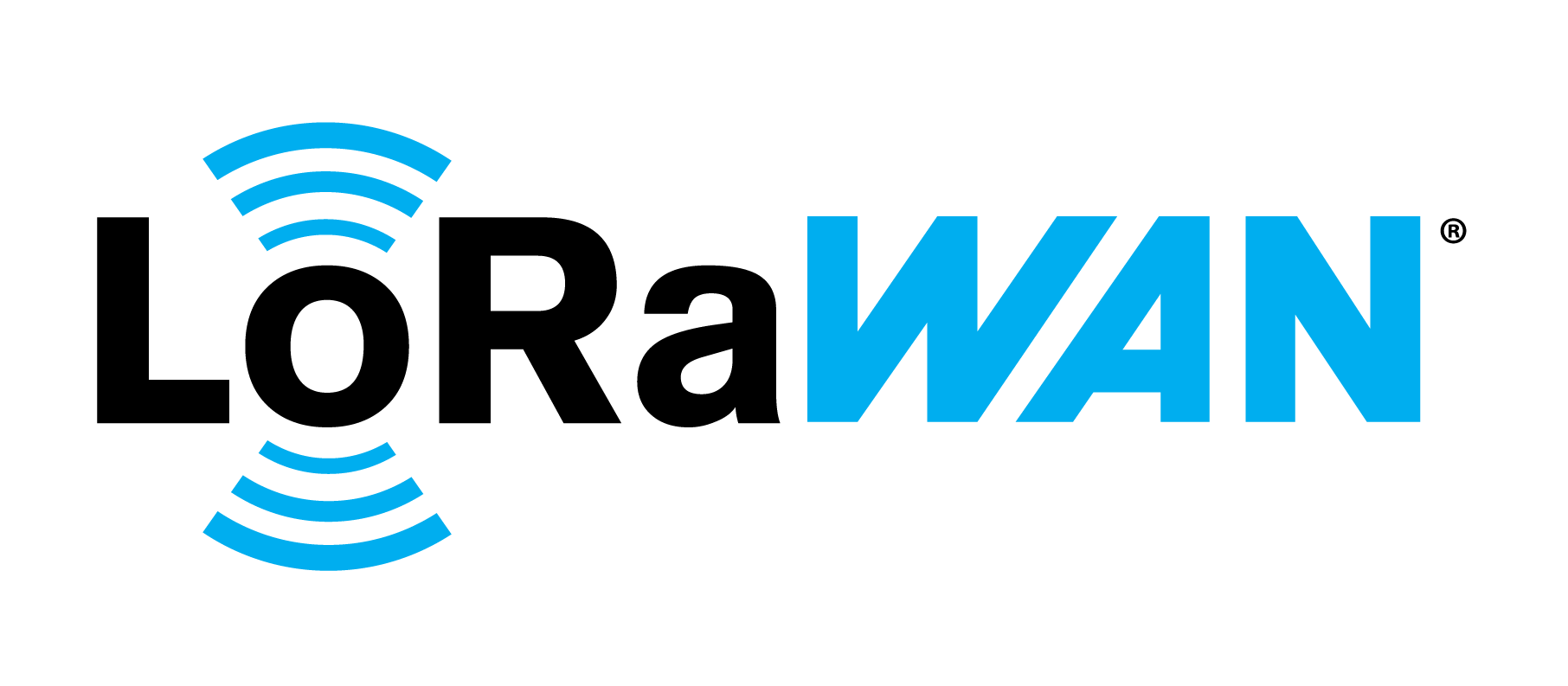

technology
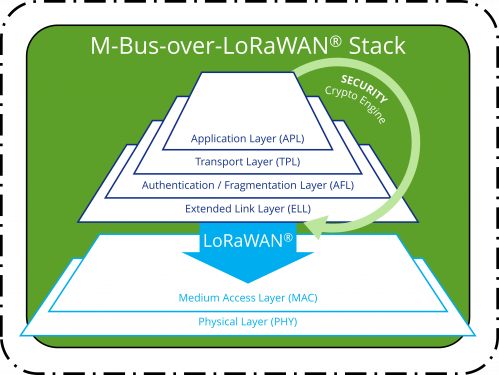
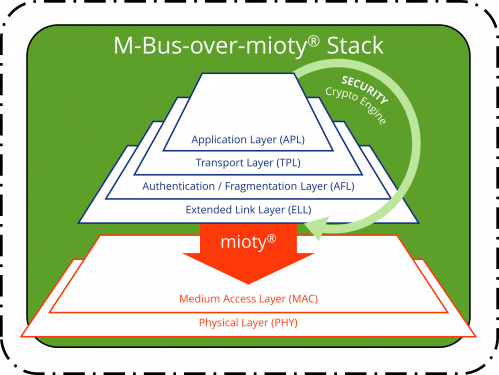
Commercial Features
First level Support

High quality product

Easy comissioning & configuration

Warranty & maintenance

Beyond wireless M-Bus
Wireless M-Bus surely is the standard protocol for metering purposes. But wouldn't it be great to enhance the flexibility of your network and to be able to switch between wireless M-Bus or OMS and also LPWAN technologies like mioty®, LoRaWAN®, Sigfox and others? We make it possible!

Our Multi-Stacks offer the possibility to choose between several stacks and radio standards, such as mioty®, LoRaWAN®, wireless M-Bus, OMS, Sigfox and others. This flexible solution allows you to achieve maximum usability when you connect your product to the Internet of Things (IoT).




